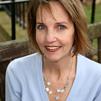Middle age is having a rebirth. Rather than conceptualizing this phase of life as something to survive, a new vision is taking hold, one that views midlife as a time of renewal and opportunity.
Instead of focusing on the statistically validated dip in happiness that settles in around 40, writers and scholars are now more interested in its upward slope. Jonathan Rauch's The Happiness Curve: Why Life Gets Better After 50 is just the latest example of this new literature on positive ageing.
This more optimistic take on middle age coincides with the reality that we are currently living in an age of longevity. The numbers speak for themselves. The average life expectancy for women in most industrialized countries is expected to exceed 85 by 2030. Of the babies born in 2017 in the U.K., the predicted real-life expectancy was 104, while in Japan it was 107.
But while the notion that we're all living to be 100 may have caught on in the popular imagination, there's still a good way to go in the policy sphere. It's true that a rapidly ageing population places all kinds of strains on government resources - requiring a shift in how we think about things like pensions and housing and beyond. But it also presents an opportunity. So we need to start thinking about how these "young old" people can keep contributing actively to their own - and society's - well-being.
Motivating politicians to do something constructive and imaginative about engaging this older cohort begins by building awareness on a mass level. To my mind, there are three ways to improve public understanding of the particular characteristics and needs of this "older" demographic.
The first is simply to throw numbers at the problem. Some of the statistics I list above demonstrating recent demographic shifts around an ageing population are truly mind-boggling. But numbers can be dry and off-putting. Devoid of a compelling narrative, they often fall on dead ears.
Another tactic is to engage in a public awareness campaign through the media. I've been really pleased to see the growing attention major media outlets are placing on breaking stereotypes about ageing. The Financial Times, for example, now has a section entitled Next Act, devoted to planning all aspects of later life. Websites with names like Better After 50, Sixty and Me and Next Avenue are all contributing to a much more complex and nuanced portrait of this demographic.
Media coverage of the particular challenges and opportunities facing this cohort is essential. As The Frameworks Institute has argued, we need a new vocabulary for how we talk about people in the second half of life if we are to generate any sort of change in attitudes or policy preferences.
But I wonder if we couldn't also be thinking about increasing awareness through education. What I have in mind is to design a set of practical, affordable courses that could be rolled out in continuing education programmes and community colleges to offer people alike a greater understanding of this new ageing landscape, as well as some tools for how to navigate it.
As part of this curriculum, students could take a survey course in which they read books like The 100 Year Life and Being Mortal to get a sense for the changing nature of the workplace and healthcare systems. This class would be aimed at a general audience, as we're all going to age in this new environment and it's worth knowing what awaits us.
Equally, those who have already arrived at midlife could take more applied courses. The National Council on Aging's Aging Mastery Course (based in the U.S.) has already begun something similar. It offers lessons in things like exercise, sleep, financial fitness and medication management.
What I have in mind would build on this idea, albeit a bit less focused on the tasks of daily living. My ideal syllabus would feature classes like how to get a job when you're over 50, how to remain creative in your old age, and how to obtain and master 21st century communication skills. These courses would be more along the lines of "life skills for grown-ups," if you will.
Historically, middle age has gotten a decidedly bad rap in our collective imagination. The proverbial midlife crisis - whether that takes the form of the red convertible, the much younger lover or simply a sudden fondness for Lycra - is well known and well-documented.
Popular culture is changing that perception. We now need public policy to catch up.
About the Author
Delia Lloyd is a Visiting Fellow at the Oxford Institute of Population Ageing. A seasoned writer and editor, she worked for a decade in radio, print and online journalism. Her reporting and commentary have been featured on outlets including The New York Times, The Washington Post, The Guardian and The BBC World Service.
Comments Welcome
We welcome your comments on this or any of the Institute's blog posts. Please feel free to email comments to be posted on your behalf to administrator@ageing.ox.ac.uk or use the Disqus facility linked below.
Opinions of the blogger is their own and not endorsed by the Institute
Comments Welcome: We welcome your comments on this or any of the Institute's blog posts. Please feel free to email comments to be posted on your behalf to administrator@ageing.ox.ac.uk or use the Disqus facility linked below.













